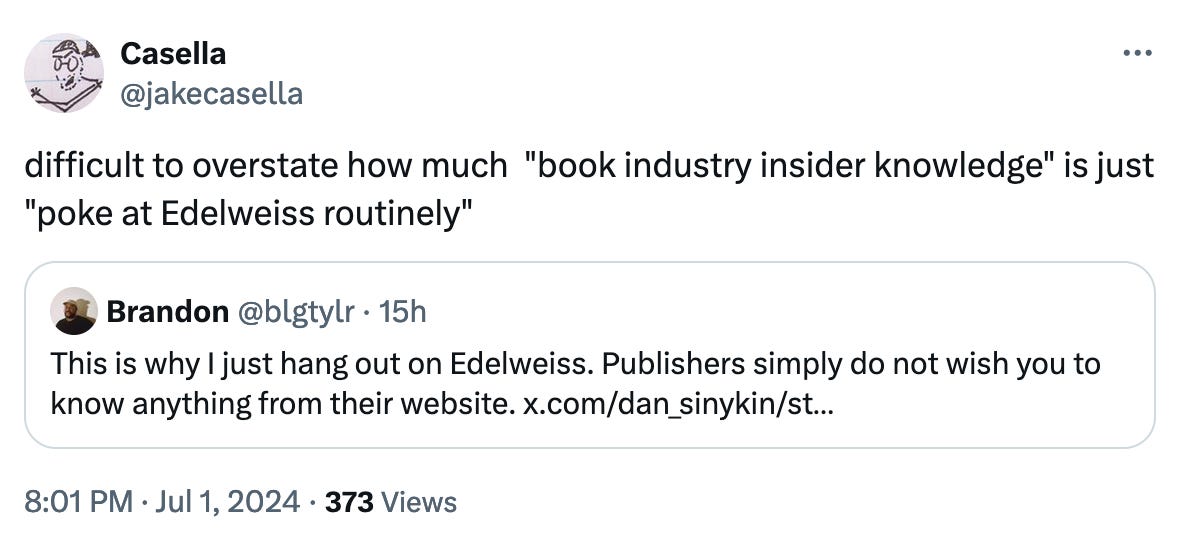
The Mess of Bibliographic Metadata - by Sam McAlilly
You walk into a bookstore and pick up a book that catches your eye. You like the cover art, or maybe you recognize the author or title. If you're a real bookhead, you'll pick up a book because of who published it. You notice the book is blurbed by one of your favorite writers, and then you read the description on the back. You're hooked. What's the price? It's right there, next to the ISBN.
These bits of information—author, title, cover art, description, ISBN, MSRP price, etc—are considered bibliographic metadata. You can freely access this information on the physical copy of the book because the publisher shares it on the book. It's in their interest to share this information, since it helps them sell the book.
This bibliographic metadata isn't as freely shared online. Nope, if you want to use this metadata for your bookstore's e-commerce site, you'll have to pay companies like Ingram Book Group, Neilson BookData, or Bowker for a data license. Or, you can pay a programmer to ingest the data feeds from the publishers, but in that case, you might be paying money only to miss a lot of books. Alternatively, ISBNdb scrapes this metadata from online retailers and resells it, presumably using some of the data from the other providers, and their data is bad. There are more data providers, but these are the bigger ones.
These terms for this data stipulate how you can use the data. You must expunge their data from your system once you stop paying them. They might prevent you from using this data in your marketing emails where you promote new releases, nor can you always use the metadata in your store's Christmas catalog. That's right, you're technically not allowed to copy/paste a book's description from Edelweiss into your email newsletter, according to their terms. Whoops.









